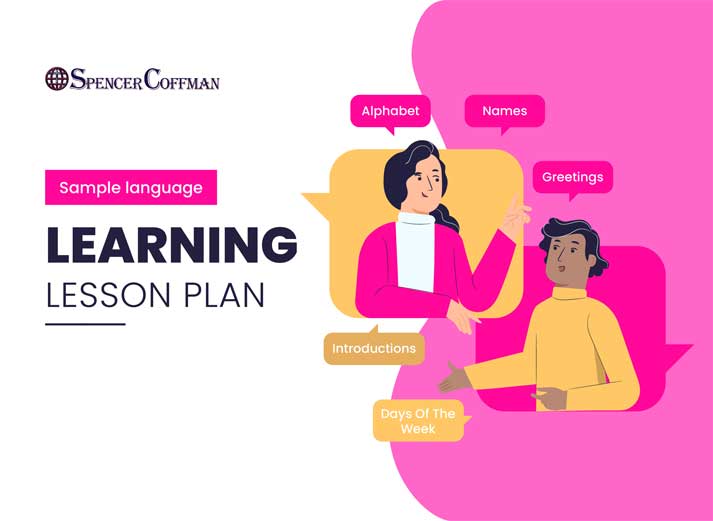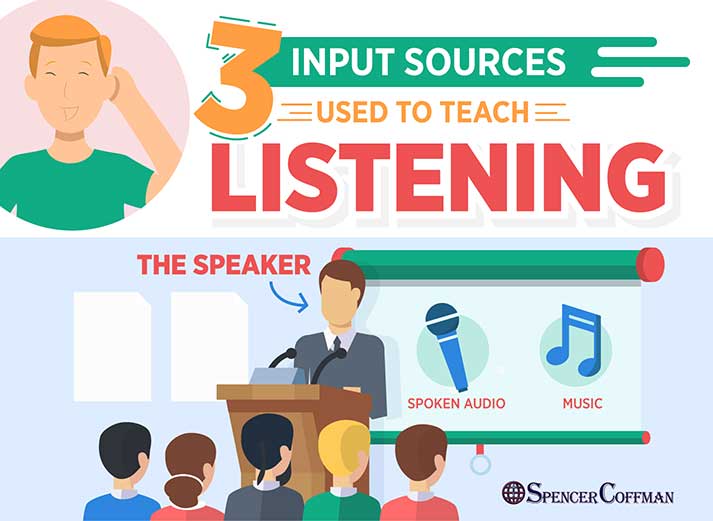Lesson plans are important because they provide the teacher with something to teach the students. In addition, they ensure that the students will actually learn something during the class.
Having a detailed lesson plan that follows the proper lesson plan layout will help the teacher to be more prepared and feel comfortable teaching the class.
A lesson plan is like a map to the classroom. Without one, the teacher may seem lost, unprepared, unprofessional, unintelligent, et cetera.
The teacher should have an outline of the lesson plan written down and available during class. That way there will be no confusion about what to do next, how much time to spend on each activity, et cetera.
Take A Look At These Five Methods to Learn a Language
Due to the fact that lesson plans are relatively easy to create, every teacher should use them. In addition, there are hundreds of templates, sample plans, and activities available. Thus, there is no excuse not to have a plan. It is an easy and foolproof method of ensuring that teachers at least look like they know what they are doing even if they feel like they do not.
Here is an example lesson plan for teaching English. Of course, any language could be substituted.
You’ll notice there are 6 lessons. This is done so that you have an extra lesson in case your students move more quickly through some lessons compared to others.
Thanks For Supporting Me On PayPal – I’ll Keep Working To Provide You With Content
Lesson 1: Alphabet
Objective: Students will learn the first nine letters of the English alphabet
Warm up – 5 minutes
Introduce myself
Outline the lesson of the day
Review – 10 minutes
Determine students’ current knowledge of the alphabet
Learn everyone’s names
Presentation of New Material – 15 minutes
Write letters A – I on the board upper and lower case
(Cursive or print dependent upon students’ native alphabet)
Associate each letter with a picture and a saying
Eg. A is for Adult, B is for Bunny
Show students that the picture looks like the letter
Help students properly copy down the letters and pictures
Pronunciation – 5 minutes
Ensure correct pronunciation of each letter
Grammar – 5 minutes
Ensure the students understand the saying
Closing – 5 minutes
Quick review on the letters in song
Tell them that next time we will examine the next nine letters
Lesson 2: Alphabet Continued
Objective: Students will learn the second nine letters of the English alphabet
Warm up – 5 minutes
Name review game
Outline lesson of the day
Review – 10 minutes
Matching worksheet on first nine letters and the picture
Presentation of New Material – 15 minutes
Write letters J – R on the board upper and lower case
Associate each letter with a picture and a saying
Show students that the picture looks like the letter
Help students properly copy down the letters and pictures
Pronunciation – 5 minutes
Ensure correct pronunciation of each letter
Grammar – 5 minutes
Ensure the students understand the saying
Closing – 5 minutes
Alphabet song of new letters
Alphabet song of eighteen learned letters
Tell them that next time we will examine the last eight letters
Know How To Assess The Knowledge Of Your Students
Lesson 3: Alphabet Continued
Objective: Students will learn the last eight letters of the English alphabet
Warm up – 5 minutes
Ensure students understand past material
Outline lesson of the day
Review – 10 minutes
List letters have students draw an associated picture
Presentation of New Material – 15 minutes
Write letters S – Z on the board upper and lower case
Associate each letter with a picture and a saying
Show students that the picture looks like the letter
Help students properly copy down the letters and pictures
Pronunciation – 5 minutes
Ensure correct pronunciation of each letter
Grammar – 5 minutes
Ensure the students understand the saying
Closing – 5 minutes
Alphabet song of new letters
Alphabet song of all learned letters
Tell them that next time we will learn to write their names
Lesson 4: Names
Objective: Students will be able to write their names in English
Warm up – 5 minutes
Alphabet flashcards
Outline lesson of the day
Review – 10 minutes
Have students write as many letters and pictures they remember
Presentation of New Material – 15 minutes
Ask if a student would like to try and write their name on the board
Go through each student’s name and properly write it on the board
Pronunciation – 5 minutes
Ensure proper English pronunciation of name if different from the native language
Grammar – 5 minutes
Associate first letter of name with a picture of alphabet letter
Closing – 5 minutes
Alphabet song
There Are Different Strategies You Can Use To Teach And Learn A Language
Lesson 5: Greetings and Introductions
Objective: Students will learn to introduce themselves and greet others.
Warm up – 5 minutes
Outline lesson of the day
Ask if students remember how I introduced myself
Review – 10 minutes
Have students gather the appropriate letters in their name from the letter tiles and spell their name on their desk
Presentation of New Material – 15 minutes
Describe scenarios and teach students greetings
“My name is” “Hi” “Hello” “Good Morning, Afternoon, evening, night”
Pronunciation – 5 minutes
Practice introductions to other students
Grammar – 5 minutes
Place names with introductions and greetings
“My name is Samir” “Good morning Ahmad”
Closing – 5 minutes
Point to letters and have students name them
Lesson 6: Days of the week
Objective: Students will learn the seven days of the week.
Warm up – 5 minutes
Outline lesson of the day
Ask students if they know any songs on the days of the week in their native language
Review – 10 minutes
Have students engage in proper introductory responses as I prompt them
Presentation of New Material – 15 minutes
Introduce the seven days of the week
Incorporate them into a song to the tune of “My Darling Clementine”
Pronunciation – 5 minutes
Practice saying the days of the week
Grammar – 5 minutes
Sing the song
Closing – 5 minutes
Tell students to come up with their own days of the week song to a tune they know
Sing the Alphabet song
I Enjoy Coffee, Tea, & Espresso – Contact Me To Send Your Favorite!
Conclusion:
Hopefully, you have found this sample lesson plan useful. Please feel free to use it when you teach a foreign language to your students. In addition, there are several other free informational articles that may help you with your language instruction experience. You can check them out here.
For more great information take a look at the supplemental content on this website and check out these great blog posts. In addition, feel free to connect with me on social media.





